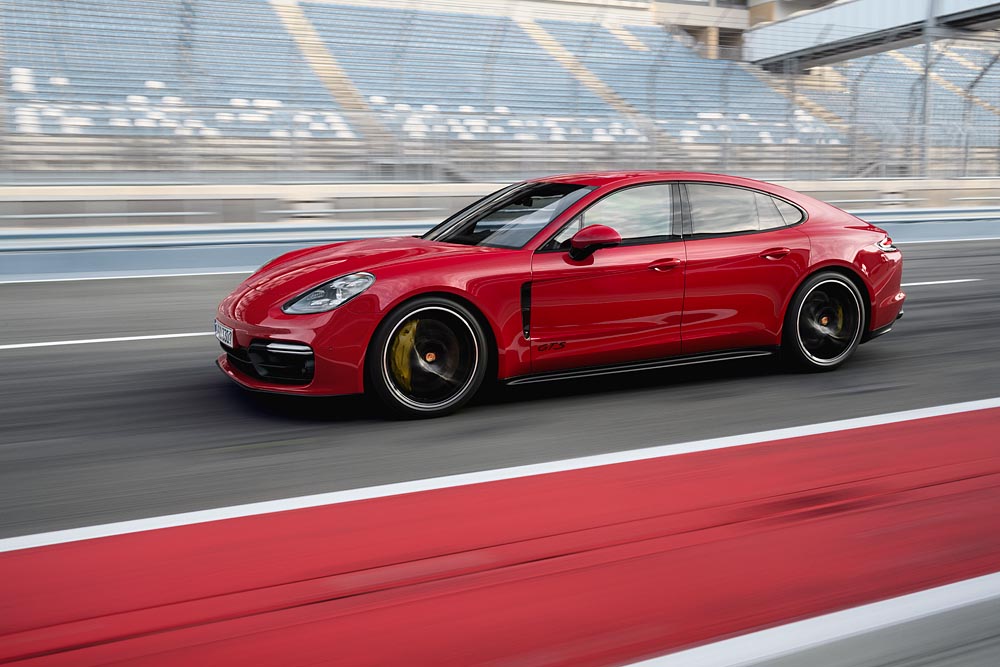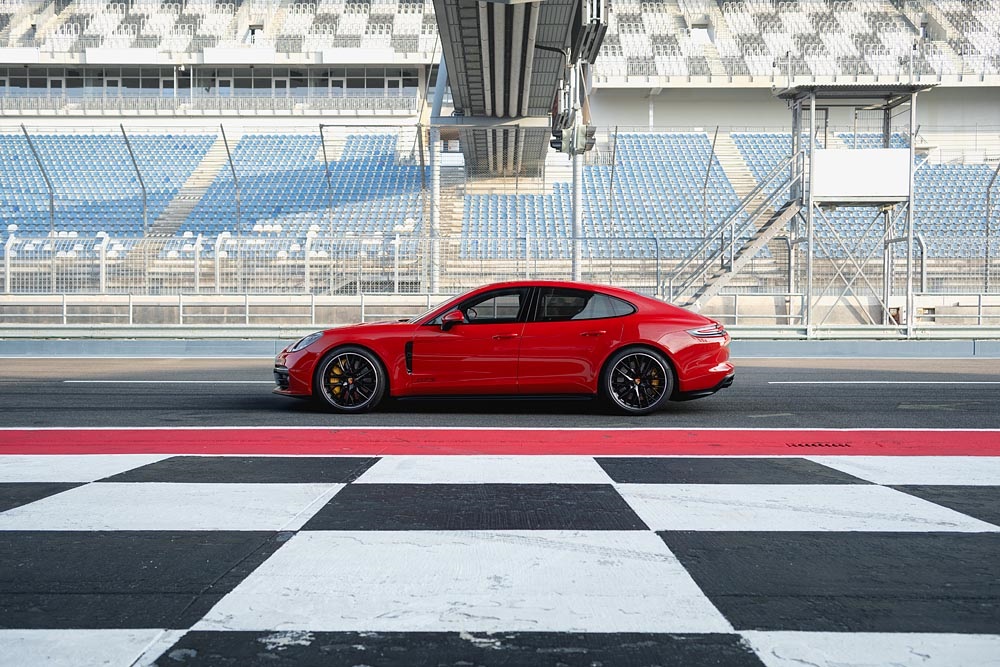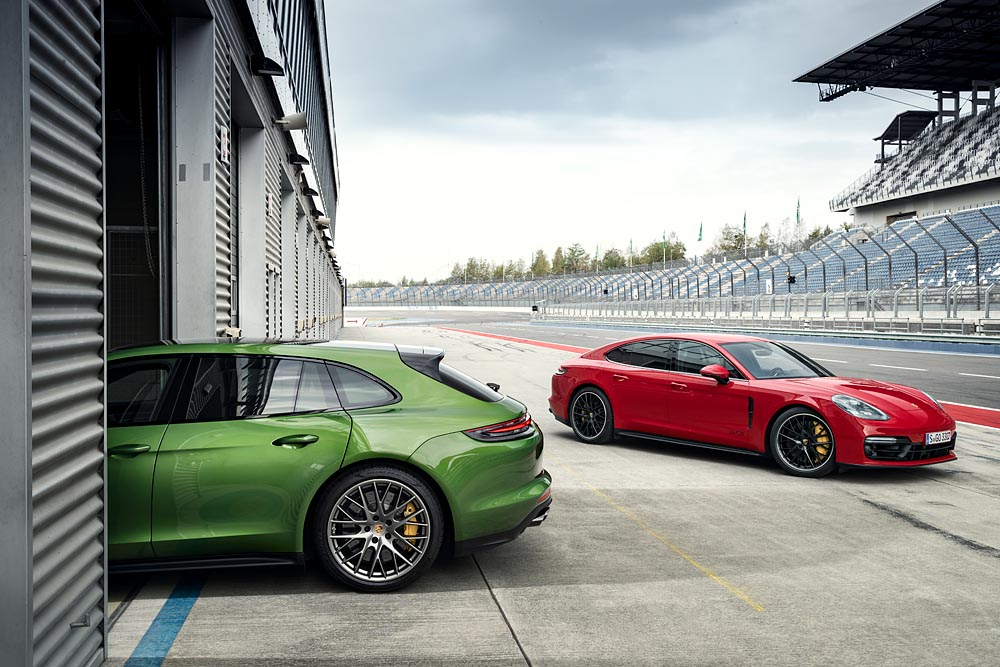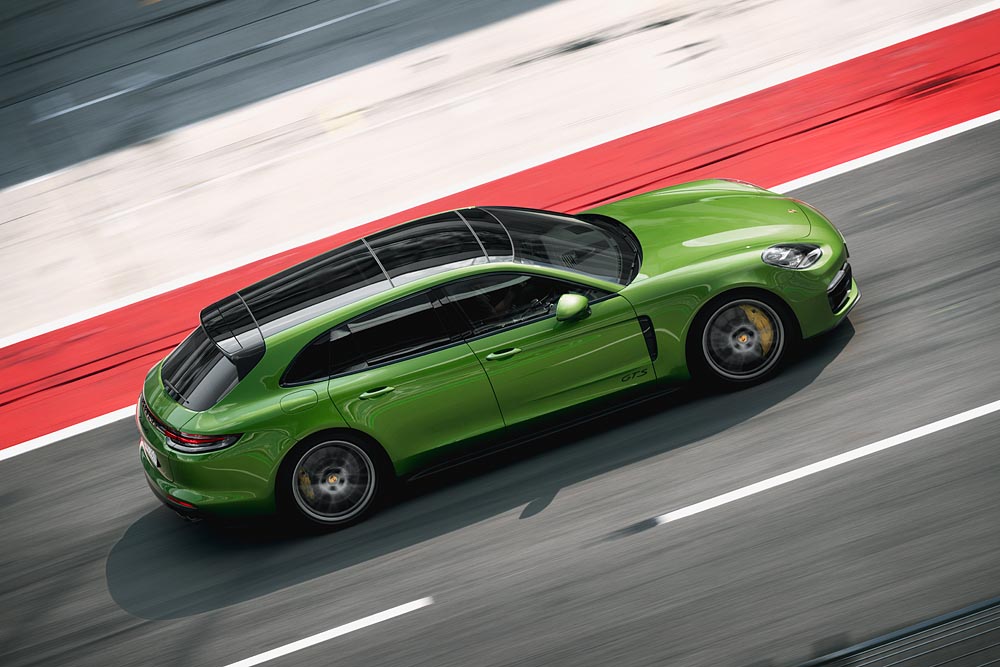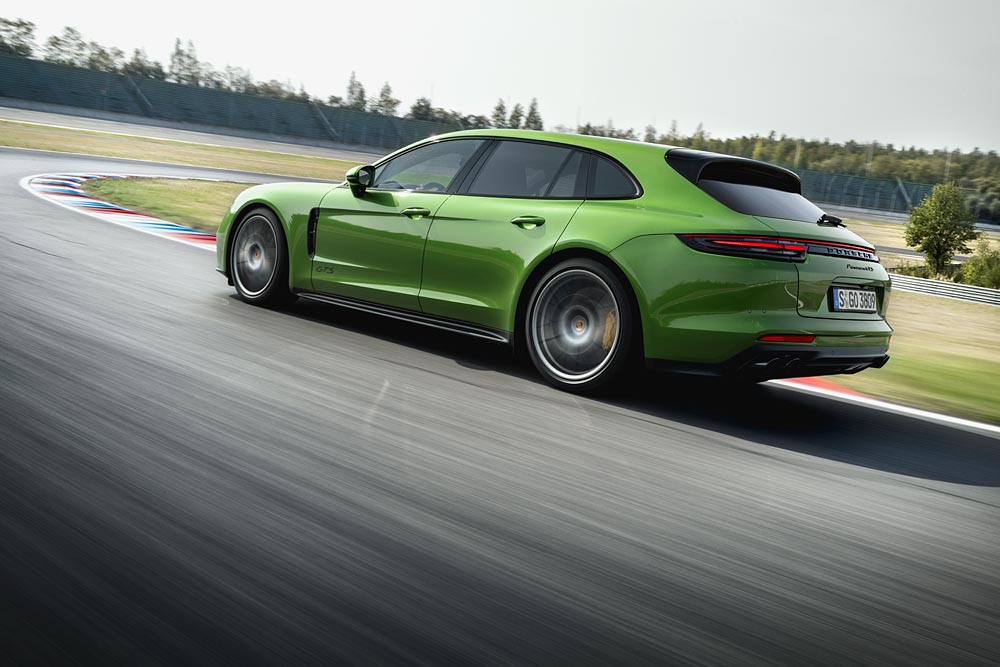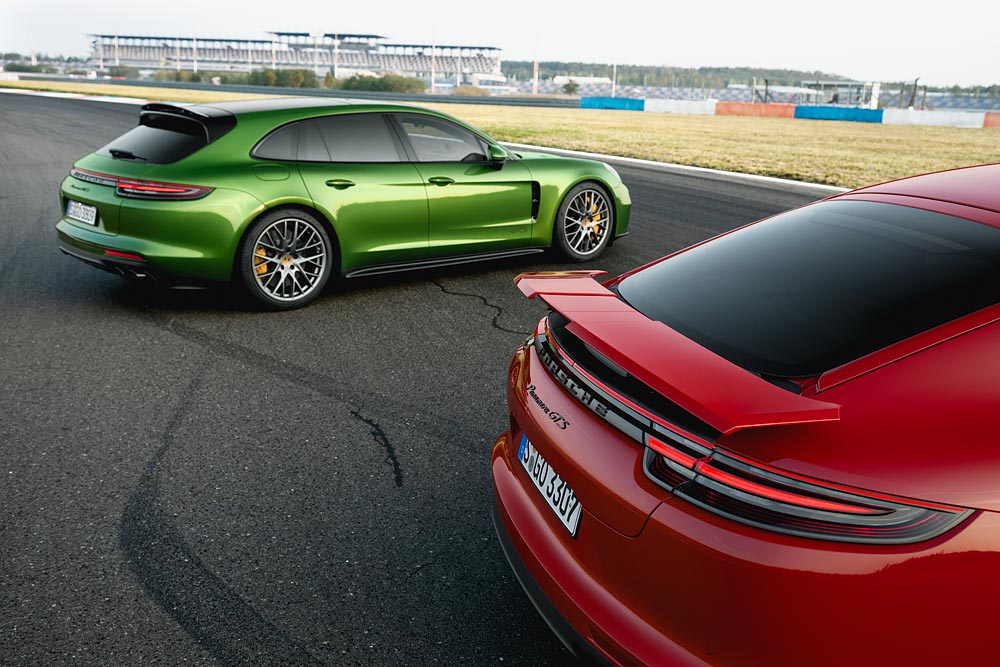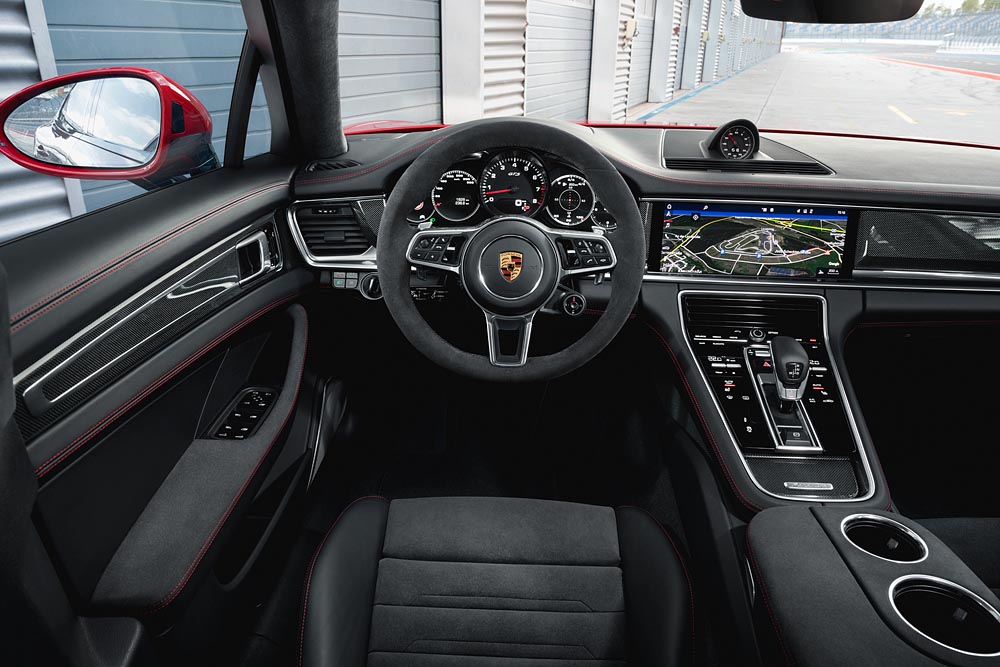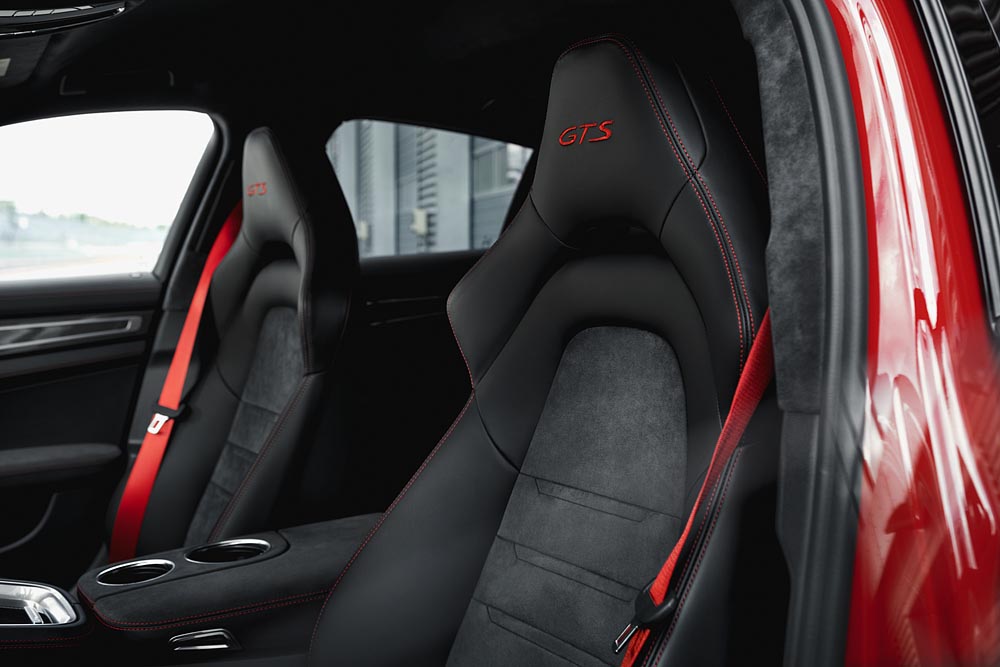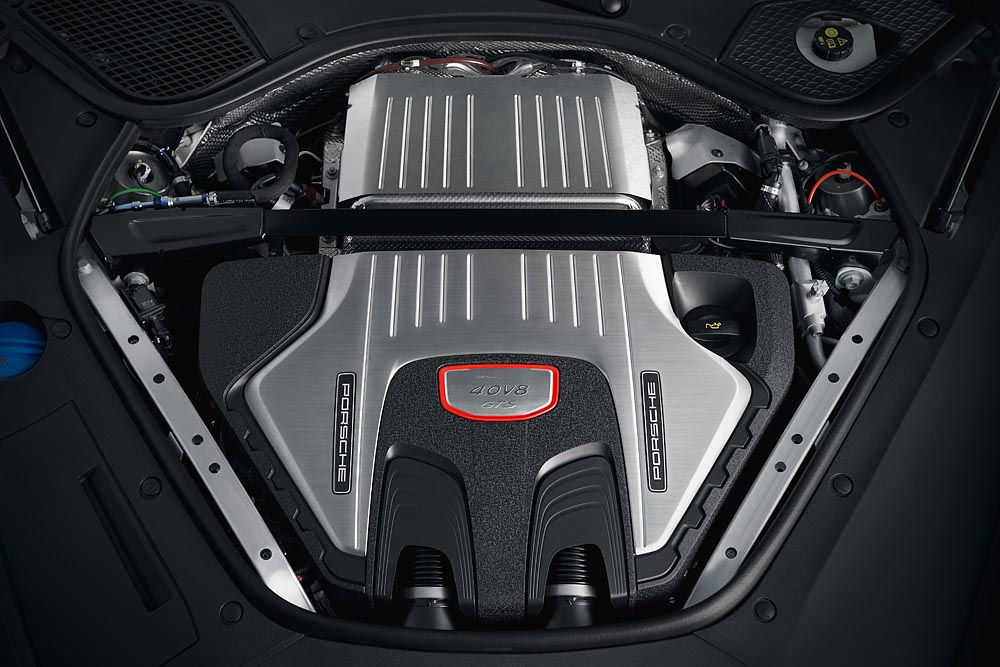The Porsche Panamera lineup has gained a midrange, GTS-badged model. It’s the driver-oriented variant we’ve been waiting for since the second-generation Panamera made its global debut in 2017. And judging by the specifications sheet, it looks like it was well worth the wait.
Porsche applies the GTS treatment to the Panamera sedan and, uniquely, to the more spacious Sport Turismo version. Both body styles receive the same engine. It’s a 4.0-liter V8 that’s twin-turbocharged to generate 453 horsepower between 6,000 and 6,500 rpm and 457 pound-feet of torque from 1,800 to 4,500 rpm. Those figures represent increases of 13 and 73, respectively, compared to the ones posted by the naturally aspirated V8 that powered the last-generation Panamera GTS. The eight-cylinder spins the four wheels through an eight-speed dual-clutch automatic transmission.
Both variants of the GTS perform the benchmark 0-to-60-mph sprint in a brisk 3.9 seconds. The sedan keeps going until it reaches 181 mph, while the wagon calls it at 179 mph. Either way, you’ll need a superlong stretch of tarmac and a correspondingly large dose of courage to see those figures appear on the speedometer. If you get there, rest assured that larger brakes lurk behind the wheels to bring you down to saner speeds in a moment’s notice when needed.
The GTS isn’t all about straight-line speed. Though heavy, it needs to be a balanced corner carver that handles like a nimbler car. To that end, Porsche lowered it slightly and tuned the adaptive air suspension to help deliver sportier, more engaging handling. Rear-axle steering is offered on the list of options.
Porsche chose the GTS to inaugurate a head-up display that offers several configuration options. It’s a color, high-resolution unit the driver can program to show different information, like the speed and navigation directions. The firm promises the head-up display will spread across the entire Panamera lineup, from the base model to the flagship Turbo S E-Hybrid, but it won’t detail the available configuration options until closer to the GTS’ market launch.
For car spotters, keep in mind that the GTS stands out from other Panamera variants thanks to black tailpipes, black trim pieces, and 20-inch alloy wheels finished in — you guessed it — black. The treatment continues inside with black Alcantara upholstery, plus anodized aluminum trim on the dashboard and the center console.
The 2019 Porsche Panamera GTS is on sale now across the United States. Pricing starts at $128,300 for the sedan variant and $134,500 for the Sport Turismo model. Neither figure includes a mandatory $1,050 destination charge or options like InnoDrive. Want one? You still have a little bit of time to make space in your garage because deliveries won’t begin until the second half of 2019.
